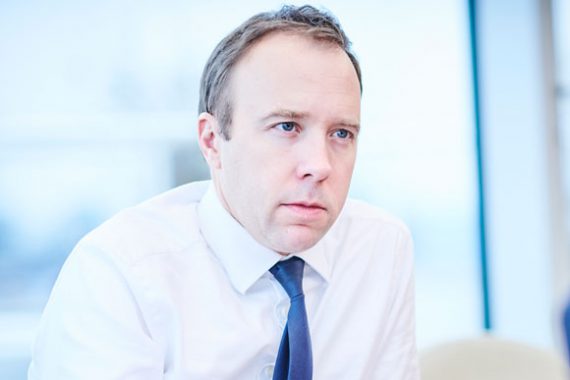Hancock wants ‘value for money’ from PCNs in GP contract negotiations

The health secretary has said he wants to ensure ‘value for money’ from primary care networks (PCNs) as part of the ongoing contract negotiations with the BMA.
In a House of Commons session this morning, health secretary Matt Hancock also stressed PCNs have been an ‘incredibly successful innovation’.
GP leaders said that PCNs were meant to provide stability, not to put extra pressure on practices.
During the sitting, in which questions are put to the health secretary, Labour’s shadow health secretary, Jonathan Ashworth, asked Mr Hancock how he was going to ‘fix’ the GP contract negotiations.
Mr Ashworth added: ‘Or is he [Mr Hancock] content to see more GPs walk out of PCNs before they’ve even got off the ground?’
Responding, Mr Hancock said: ‘He’ll [Mr Ashworth] understand why I want to get the best possible value for money, for the money that the NHS spends.’
He added that negotiations with the BMA over the GP contract are ‘always tough’ but that PCNs have been successful so far.
He said: ‘Primary care networks have been an incredibly successful innovation, with the whole country covered by PCNs, which allow practices to work together.’
The exchange between Mr Hancock and Mr Ashworth follows the release of controversial network proposals by NHS England, which have caused an outcry among the profession and are now being discussed as part of contract negotiations.
GP leaders warned the proposals, covering five service specifications – one of which included the requirement for GPs in networks to visit care home patients every fortnight – could threaten practices’ viability.
They warned the plans were not achievable due to the increase in workload and lack of additional funding during a time of a staffing crisis in general practice – and in some regions practices were advised to reject the network DES contract altogether.
GPs have also stepped down from their roles as clinical directors of networks following the release of the proposals.
Medical secretary of Lincolnshire LMCs Dr Kieran Sharrock told Pulse that he believes PCNs ‘will not be in existence in a few months’ if this is the Government’s attitude.
He said: ‘PCNs were first designed to provide stability and resilience to primary care because of the unprecedented workforce and workload issues that we’re suffering, but all they’re doing is putting extra pressure on practices and groups of practices. With rhetoric like Matt Hancock’s, I think you’ll find that practices disengage.’
He added that while it is ‘completely correct’ to ensure that tax-payers’ money is used wisely, the proposed PCN specifications would fail to deliver on their aims because they places ‘too much extra work’ on practice teams.
He said: ‘The funding should really be there to provide resilience and support for practices and PCNs to provide essential services and help prevent patients from being unwell, whereas what they were doing was going to stretch practices too far.
‘All they were going to achieve was the collapse of general practice as we know it.’
Lancashire and Cumbria LMCs chief executive Peter Higgins reacted to the health secretary’s comments with ‘despair’ because any suggestion that PCNs ‘aren’t already going the extra mile is naïve and insulting.’
He said: ‘Even if PCNs wanted to do all that’s expected of them, they couldn’t because they haven’t got the infrastructure support, the time and the management support, let alone all these extra staff and additional roles they’re supposed to have.
‘I would support PCNs unreservedly but they’ve got to have time to mature and develop without being micro-managed to incredibly detailed performance targets. The level of detail is almost like telling a consultant how many stitches to put in an appendicectomy.’
Mr Higgins added that it feels as if GPs and PCNs are being asked ‘to justify every ha’penny and penny that’s spent on them’.
He said: ‘It’s that micro-managing and distrust that I find disappointing.’
Pulse July survey
Take our July 2025 survey to potentially win £1.000 worth of tokens











